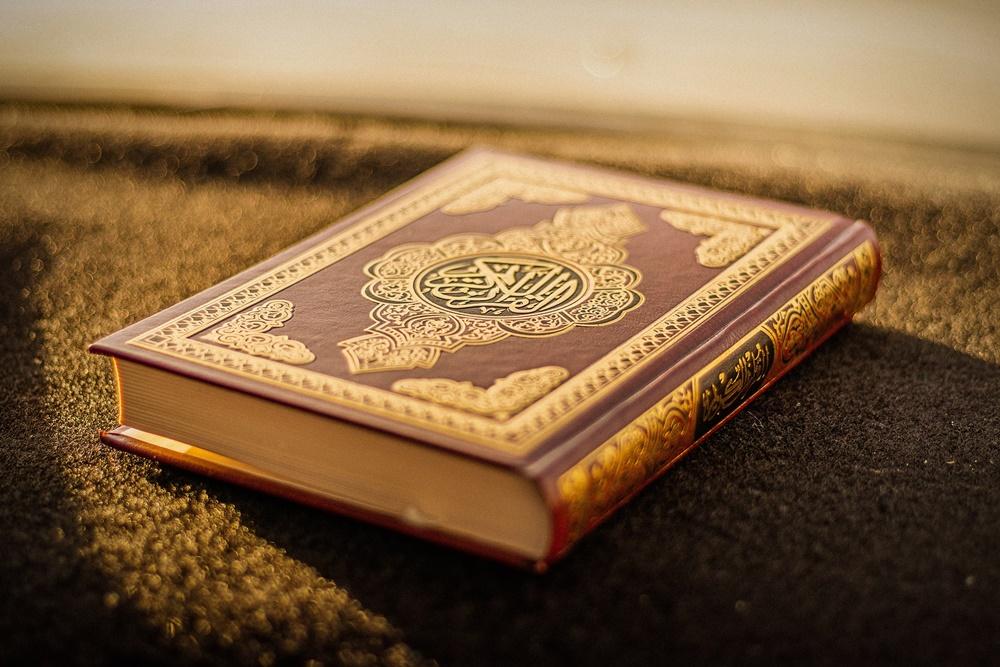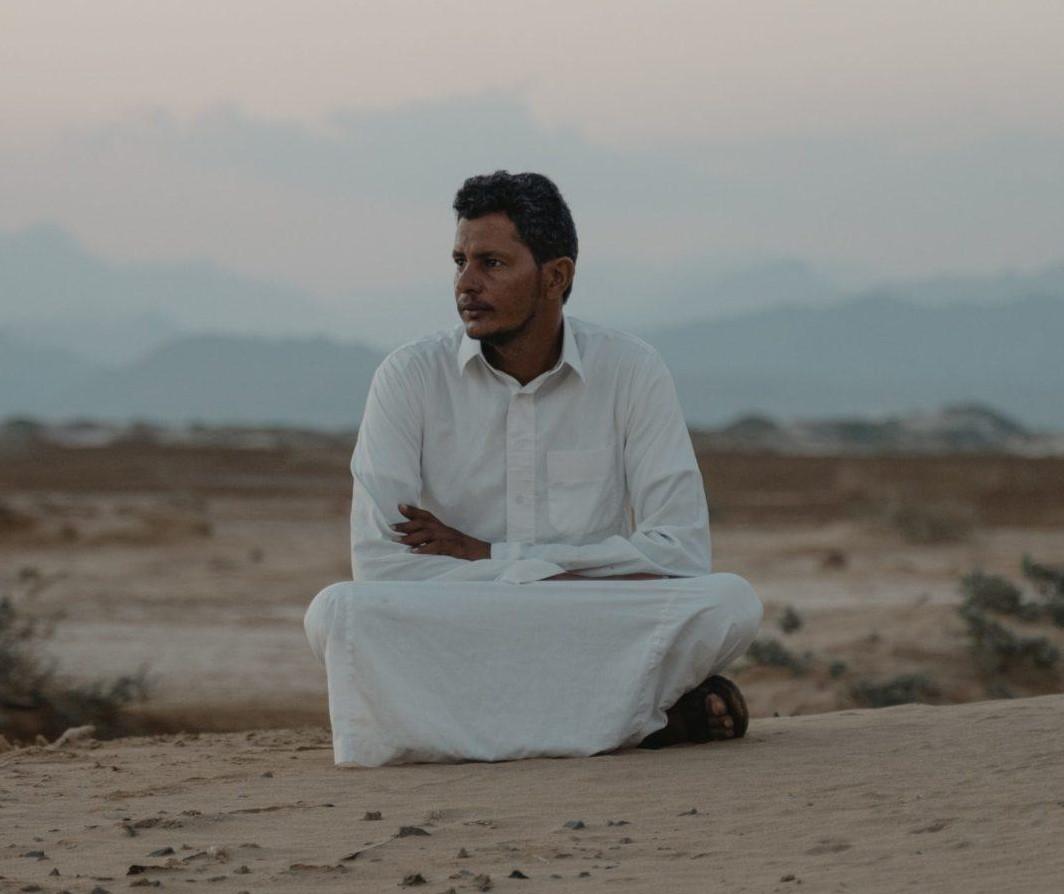Muharram is marked in many places by chest-thumping, flagellating crowds and processions that leave traffic jams and chaos in their wake. People make special sweets and dishes and line streets with streamers and lamps, to the extent that non-Muslims mistake these ceremonies for a celebration and might even wish Muslims “Happy Muharram”!
While many Muslims are now aware that these practices are bid’ahs (innovations), there are some other misconceptions about Muharram that have no basis in the Qur’an or Sunnah, that Muslims still hold true.
Misconception #1
“The day of ‘Aashoora’ on which we fast is not the correct day. The correct day is the tenth day of the month of Tishrei, the first month in the Hebrew calendar, and the Umayyad caliphs changed it to the tenth day of the month of Muharram.”
Fact check: The fast of ‘Aashoora’, which Muslims observe on the tenth day of the month of Muharram, is the day on which Allah saved Moosa (peace be upon him) and drowned Pharaoh according to numerous authentic narrations, and it is the day on which some of the Jews in Madinah fasted. It is also the day on which Allah commanded the Prophet ﷺ to fast at first, then the obligation to do so was abrogated when fasting Ramadan was made obligatory, and fasting ‘Aashoora’ became mustahabb (encouraged but not obligatory).
The claim that some Umayyad caliphs started the practice of fasting on this day or that there are contradictions in the narrations is a lie.
For more information and scholarly opinions:
- ‘Aashoora’ in Islam and previous religions, and refutation of the Raafidi claim that it is an innovation introduced by the Umayyads
- No contradiction among the narrations on fasting Aashoora
Misconception #2
“This is the day on which Adam, peace be upon him, was created. This is the day when Ibraheem, peace be upon him, was born. This is the day when Allah accepted the repentance of Adam, peace be upon him. This is the day when Qiyaamah will take place.”
Fact check: None of these narrations are classified as authentic.
For more information see Misconception #3 and the following links:
Misconception #3
“Paying zakat on this day, slaughtering animals on this occasion, or – in the case of women – using henna, taking a bath, wearing new clothes, spending money on one’s family, or buying the year’s supplies on that day, visiting one another, or visiting the mosques and mashhads (shrines) is rewarded.”
Fact check: Shaykh al-Islam Ibn Taymiyah (may Allaah have mercy on him) was asked this question and he replied:
‘Praise be to Allaah, the Lord of the Worlds.
Nothing to that effect has been reported in any Saheeh hadeeth from the Prophet ﷺ or from his Companions. None of the imaams of the Muslims encouraged or recommended such things, neither the four imaams, nor any others. No reliable scholars have narrated anything like this, neither from the Prophet ﷺ nor from the Sahaabah, nor from the Taabi’een; neither in any authentic or weak report; neither in the books of Saheeh, nor in al-Sunan, nor in the Musnads.
They also narrated reports concerning the supposed virtues of praying on the day of ‘Aashoora’, and other reports saying that on the day of ‘Aashoora’ Adam repented, the Ark settled on Mount Joodi, Yoosuf returned to Ya’qoob, Ibraaheem was saved from the fire, the ram was provided for sacrifice instead of Ismaa’eel, and so on. They also reported a fabricated hadeeth that is falsely attributed to the Prophet (peace and blessings of Allaah be upon him), which says, “Whoever is generous to his family on the day of ‘Aashoora’, Allaah will be generous to him for the rest of the year.” [al-Madkhal, part 1, Yawm `Ashura’]
Misconception # 4
“Whoever puts kohl in his eyes on the day of `Ashoora’ will not suffer from eye disease in that year, and whoever takes a bath (does ghusl) on the day of `Ashoora’ will not get sick in that year.”
“Whoever is generous to his family on the day of `Ashoora’, Allah will be generous to him for the rest of the year.”
Fact check: Ibn Taymiyyah (may Allah have mercy on him) said regarding these narrations:
“No hadeeth of this nature was known during the best centuries, but some of the later narrators reported narrations like the one which says: “Whoever puts kohl in his eyes on the day of ‘Aashooraa’ will not suffer from eye disease in that year, and whoever takes a bath (does ghusl) on the day of ‘Aashooraa’ will not get sick in that year, etc. Reporting all of this from the Prophet ﷺ is tantamount to lying.” [Al-Fataawa al-Kubra, part 5]
Misconception # 5
The sanctity of ‘Ashoora’ is associated with the martyrdom of Husayn, may Allah be pleased with him.
Fact check: The martyrdom of the Prophet’s grandson Husayn, may Allah be pleased with him, is a tragic event in Muslim history; however, there were many other stalwarts of Islam (including members of the Prophet’s family) who were martyred, yet we do not commemorate their deaths.
The sanctity of Aashoora’ cannot be ascribed to the martyrdom of Husayn, may Allah be pleased with him, simply because the sanctity of this day was established during the days of the Prophet, ﷺ before Husayn, may Allah be pleased with him, was born!
Misconception # 6
“The month of Muharram is an evil or unlucky month, since Husayn, may Allah be pleased with him, was killed in it. This is why people avoid holding marriage ceremonies in the month of Muharram.”
Fact check: Muharram is a sacred month among the four sacred months of Allah. It is neither disliked nor unlawful to propose marriage or get married in it. Some points worth reflecting over:
- Isn’t the day on which the Messenger of Allah ﷺ died the greatest calamity that befell the Muslim Ummah? Why is it not also unlawful/disliked to get married during Rabee‘ al-Awwal, the month in which he died?
- Why isn’t the ruling that marriages are forbidden in Muharram narrated from any of the Sahaabah or members of the Prophet’s household (Ahl al-Bayt), or the scholars after them?
Interestingly, Ibn Katheer (may Allah have mercy on him) said:
“Al-Bayhaqi quoted from al-Ma‘rifah by Abu ‘Abdullah ibn Mandah that ‘Ali married Faatimah one year after the Hijrah, and consummated the marriage with her one year after that. According to this view, the consummation of his marriage to her occurred at the beginning of 3 AH.” [al-Bidaayah wa’n-Nihaayah, 3/419]
For more information: The widespread belief that it is makrooh to get married in Allah’s month Muharram
Misconception # 7
It is rewarded to hold assemblies to lament and mourn the death of Husayn, may Allah be pleased with him. This includes wearing black clothes, abstaining from food from dawn to night, refusing to eat meat during the first ten days of Muharram and abstain from drinking water in memory of Husayn, may Allah be pleased with him.”
Fact check: The Prophet ﷺ never held such assemblies in his lifetime despite losing many close members of his household including his beloved uncle Hamzah bin Abdul-Muttalib, his wife Khadijah, his daughters and son and his cousin, Ja’far bin Abi-Talib.
In fact, he expressly forbade holding mourning ceremonies on the death of any person like the people of jahiliyyah (pre-Islamic ignorance), who used to mourn over their deceased with loud lamentations, tearing their clothes and beating their cheeks and chests. The Prophet, ﷺ stopped the Muslims from doing this and directed them to observe patience by saying: “Inna lillahi wa inna ilayhi raji’oon” (To Allah we belong, and to him we return).
He said:
“He is not from us who slaps his checks, tears his clothes and cries in the manner of the people of jahiliyyah.” [Sahih Al-Bukhari]
Husayn, may Allah be pleased with him, advised his sister Zaynab not to mourn over his death in this manner if he were killed in battle, and said:
“My dear sister! I beseech you that in case I die you shall not tear your clothes, nor scratch your face, nor curse anyone for me or pray for your death.” [Al-Kamil, Ibn Kathir, vol. 4, p. 24]
Misconception # 8
It is Sunnah to prepare a particular type of meal (with or without grains) on the day of ‘Ashoora’ and distribute it in large gatherings.
Fact check: Just as refraining from eating permissible things that Allah has allowed on specific days comes under the heading of monasticism, cooking special food as part of religious practice is something for which Allah has not given permission.
The custom of not eating meat during these days or conversely, cooking, eating and distributing special dishes all comes under the heading of innovation that is not permissible as a means of drawing closer to Allah. It is not permissible to obey one’s parents and grandparents concerning this, or to follow them in doing it.
Misconception # 9
“Taking out processions where people self-mutilate with chains and swords and ‘taziyehs’ are religious practices in Islam.”
Fact check: Beating chests, slapping cheeks, striking shoulders with chains and cutting heads with swords to let the blood flow are all evil innovations that have no basis in Islam and are actions inherited from the jaahiliyyah. Abdullah bin Mas’ood (may Allaah be pleased with him) narrated that the Prophet ﷺ said: “He is not one of us who strikes his cheeks, rends his garment, or cries with the cry of the Jaahiliyyah.” [Al-Bukhaari (1294) and Muslim (103)]
Ibn Katheer, a famous 14th century Arab historian recounts:
On the tenth of Muharram of this year (963 AD/352 AH), Mu‘izz al-Dawlah Ibn Buyeh, may God disgrace him, ordered that the markets be closed, and that the women should wear coarse woolen hair cloth, and that they should go into the markets with their faces uncovered and their hair disheveled, beating their faces and wailing over Hussein ibn Ali ibn Abi Talib.
For more historical accounts: the origins of flagellation, processions, taziyeh and tashabih and innovations and misguidance on 10th Muharram.
Misconception # 10
Fasting on the 10th of Muharram expiates sins for the past year and the coming year both.
Fact check: Fasting the day of ‘Ashoora’ does expiate for the past year, because the Prophet ﷺ said: “Fasting the day of ‘Arafah, I hope Allaah will expiate thereby for the year before it and the year after it, and fasting the day of ‘Ashoora’, I hope Allaah will expiate thereby for the year that came before it.” [Narrated by Muslim, 1162]
The Prophet ﷺ was very keen to make sure he fasted on the day of ‘Ashoora’ because of its great status. It was narrated that Ibn ‘Abbaas (may Allaah be pleased with him) said: I never saw the Prophet ﷺ so keen to make sure he fasted any day and preferring it over another except this day, the day of ‘Ashoora’, and this month – meaning Ramadan.” [Narrated by al-Bukhaari, 1867]
Limited free articles. Subscribe for full access.








 Dr. Bilal Philips
Dr. Bilal Philips